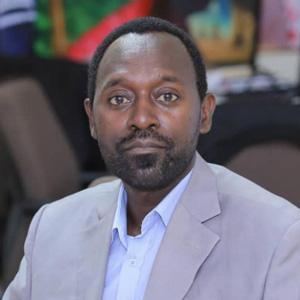By Magezi Kirinjju
On 12th May 2021, His Excellency Yoweri Tibuhaburwa Kaguta Museveni will be sworn in as president of Uganda for the next five years. This is after he won the January 14th, 2021 presidential election billed to be as the president himself put it “…the most cheating-free election since 1962”.
The ruling National Resistance Movement Party swept majority parliamentary seats, i.e. the youth, women and special interest groups category.
This majority sweep didn’t come out of the blue, in the 2018 Local Council (LC) elections; NRM won over 90% of village and parish leadership positions countrywide. Therefore, it’s evident that Ugandans recognize that the party continues to deliver on its manifesto of improving the quality of life, deepening democracy, creating jobs, and build an all-inclusive economy.
NRM has been tried and tested by Ugandans and emerged with distinctions right from the handling of the most violent past to the social-economic transformation the country is undergoing right now.
In the last five years, the government concentrated on three core goals; modernization, job Creation, and promoting innovation under the 2016 manifesto themed “Taking Uganda to Modernity through Job-Creation and Inclusive Development”. Let us examine the score sheet in this regard.
Uganda continues to enjoy the peace and stability that NRM restored and maintained by consolidating the security of citizens, their possessions, and all borders through modernizing and equipping the army. Uganda Police Force has also undergone improvements quantitatively by recruiting more personnel and qualitatively through more specialized training, securing modern equipment, and attracting educated Ugandans who used to shun security work before.
A democratic culture of regular free and fair elections has taken root in Uganda. Electoral reforms have been carried out like reconciling voter registries with national identification through a biometric system, supporting affirmative action for the youth, women, people with disabilities, and the elderly. It’s therefore ironic that the United States continues to lecture Uganda and Africa in general over democracy while heading the opposite direction at home. Forty-three states of the fifty have and are in the process of enacting laws that limit voter participation. WHY!?
Uganda’s economy has been growing at 6% annually till the covid19 pandemic disrupted the entire global trade. NRM has set a goal of translating this phenomenon of economic growth into jobs and wealth for ordinary citizens. The government is also doing this through promoting commercial agriculture, industrialization, empowering the service sector, and supporting information and communications technology.
Through Operation Wealth Creation, small and medium-scale farmers have been able to access inputs to improve yields. Some crops like coffee have seen a surge in exports from 4,519,563 bags valued at $436.54m in 2019 to 5,492,525 60-bags worth $515.94m.
President Museveni has emphasized that for Uganda to leap to a modern country, industrialization is key. It is in this regard that the Uganda Investment Authority was tasked to develop 22 Industrial & Business Parks around the Country to ease accessibility of land for investors, promote local investment, boost Uganda’s exports and create jobs for Ugandans.
The government signed The EACOP Tripartite Project Agreement that will benefit the peoples of Uganda, Tanzania, and East Africa in general. The project starts with the construction of a 1,440 km crude oil pipeline from Uganda’s Albertine region to Tanzania’s seaport of Tanga expected to attract between $15bn to $20bn into Uganda’s economy even before commercial production begins.
The $3.55bn electrically heated crude oil pipeline will create more than 10,000 job opportunities during execution. Uganda will also have a refinery in Kabaale Petro-based Industrial park and an Airport in Hoima.
Uganda’s Electricity sub-Sector has grown from three (3) generation plants in 2001 to over 40 plants. The installed generation capacity has grown from 400mw in 2000 to 1,868mw today and these are to be supported by eight (8) small dams under construction that will generate a total of 118.5mw.
Uganda is also harnessing the abundance of sunlight by investing in solar energy. The government has also made it easier for private companies to put invest in solar power production. The Soroti Power Station has for example added 10 MW (13,000 hp) to the national grid and others soon to join.
Ministry of Information, Communications Technology, and National Guidance started the National ICT Initiatives Support Programme to encourage innovation, generate highly skilled jobs and wealth for individuals and companies and improve the use of government data for ICT innovation and application development. The program that has run for 3 years now will see forty-five winning innovators sharing the grant of UGX7.39 billion from Government this year 2021.
Uganda improved the health and living standards of its citizens by educating them through pioneering Universal Primary Education and Universal Secondary Education. This access to education has bridged the gender gap between girls and boys, fostered peace, and improved community hygiene.
From one public university that started in 1922, Uganda today boasts of fifty universities; nine of them public and forty-four private. With the exception of Makerere University, the rest never existed before NRM came to power in 1986. The country’s literacy rate stood at 76.53% in 2018 as a result of developments in the education sector.
Uganda under NRM has built an international reputation as a pandemic buster having started with AIDS immediately after taking over power in 1986. The success culminated in President Museveni winning awards for his exemplary leadership that had made Uganda both a continental and global role model in fighting the HIV/AIDS scourge. Uganda also successfully fought Ebola in early 2000.
With such a rich history of containing Ebola and Marburg outbreaks e.t.c, it’s no wonder that Uganda was requested by the World Health Organisation to send twenty of her experts in epidemiology, case management, community education, and psychosocial support to Sierra Leone and Liberia to help curb the spread of similar diseases in 2014.
Once again, Uganda has emerged among the top countries in covid19 pandemic containment so far. She has been ranked by the Medical Journal, the Lancet as one of the top 10 best-performing countries in the world in suppressing COVID-19 as of August, 2020. The latest ranking also makes Uganda the best-performing country on the African continent, a position that Ugandans must be proud of. Uganda has been able to succeed due to the dedication of frontline health workers and the visionary leadership by President Museveni.
All these monumental achievements by NRM have convinced Ugandans that President Museveni is the candidate to secure their future and voted for him and the party for the next five-year term. Like the president said “YOU HAVE SEEN US DELIVER BEFORE, YOU CAN TRUST US WITH THE FUTURE”, to all Ugandans, consider the future secured.
Long live President Yoweri Museveni, Long live NRM Party.














































Discussion about this post